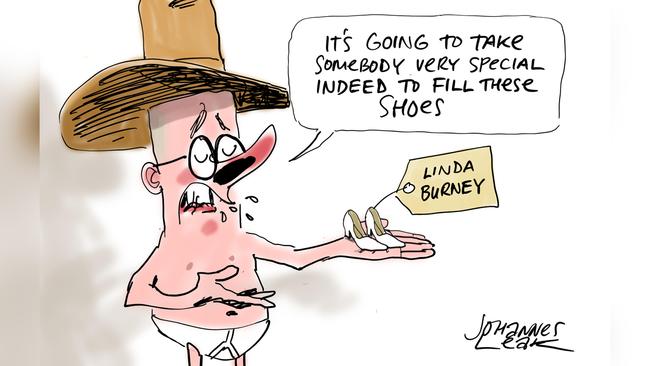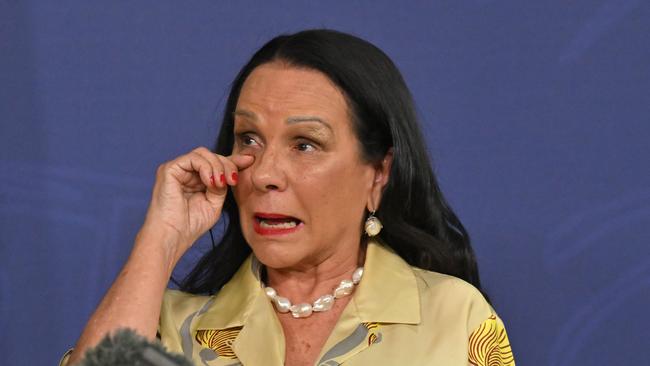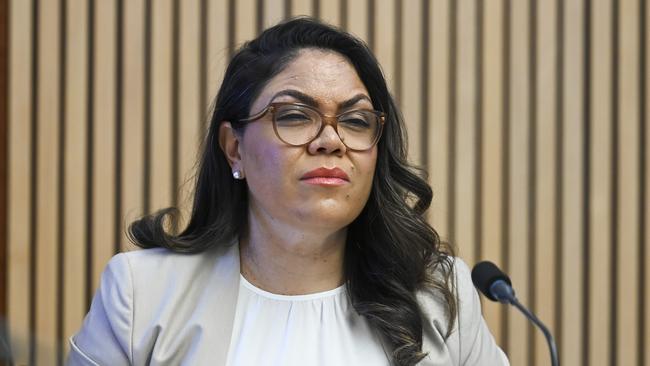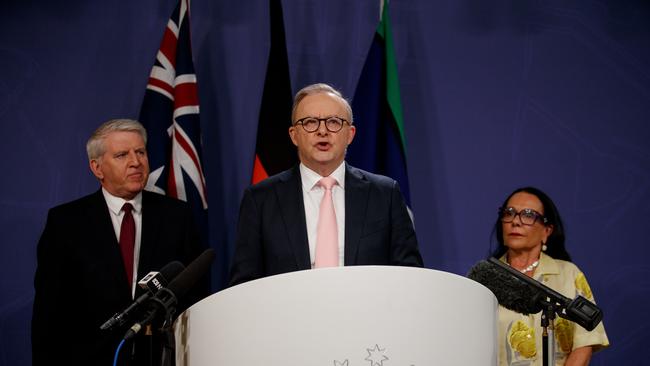Albanese must clear the decks and get his house in order


The retirements of Ms Burney and Mr O’Connor are a signpost that the election planning has begun in earnest. Ms Burney is a significant figure whose achievements are not defined by the failure of the voice to parliament referendum, in which she played a high-profile role. Opposition Indigenous affairs spokeswoman Jacinta Nampijinpa Price paid tribute to Ms Burney’s achievements. “When the day comes that Indigenous Australians have the same life expectations as every other Australian, it will be in part due to Minister Burney’s dedication in an area of politics filled with difficult and harrowing realities,” Senator Nampijinpa Price said. Mr Albanese said Mr O’Connor was an “instrumental” part of Labor, whose judgment he respected.
Mr Albanese’s freedom in determining his new cabinet makeup will be constrained by the intricacies of Labor factional politics. As Simon Benson writes on Friday, Mr Albanese may choose who goes into what portfolio but it is the factional bosses who tell him who he can choose from. He must nonetheless be ruthless in removing the poor performers. Top of the list must be to move Andrew Giles, Mr Albanese’s factional ally, from the immigration portfolio and Clare O’Neil from home affairs. Immigration is always a difficult portfolio but Mr Giles has been spectacularly inept in protecting both community security and the political interests of his party and leader. Ms O’Neil has been left flat-footed amid a surge in cyber security breaches. Julie Collins is failing to deliver on the priority issue of housing, where Labor finds itself under pressure from the Coalition and the Greens. Aged care is another troubled portfolio that requires urgent attention.

Above all, Mr Albanese must use the reshuffle to send a firm message on border security so he can refocus his government on the economic challenges looming on the horizon. Some of those challenges have been made worse by the government’s own actions. Most noteworthy have been its changes to industrial relations laws and energy policy. Both contribute to the bigger challenge of tackling inflation. With an election looming, the government’s fortunes are riding on whether the Reserve Bank board considers it necessary to lift interest rates further. Economists have made the obvious point that another rise in the cash rate will quickly eat up any benefit from the recent stage three tax cuts.

Meanwhile, as Labor’s new IR laws take effect, the evidence is there already that the business sector is doing it tough. Business failures have surged to a record high as deteriorating economic conditions combined with rising operating expenses force many companies to close for good. Australian Securities & Investments Commission figures show there were 11,049 insolvency appointments in the 2024 financial year, a 39.1 per cent increase on the 7942 appointments a year prior, and 124 per cent more than 2022. The past financial year had the highest rate of external administration and controller appointments since ASIC records began in the late 1990s, surpassing the previous high of 2012 when 10,757 businesses went under amid the fallout from the global financial crisis.
The grim news for the private sector is being largely hidden by expansion in the public sector, where employment continues to grow. Public sector numbers and wages are rising, particularly in government-funded services, which the government has tagged the care economy. Productivity Commissioner Danielle Wood has warned that government spending in the care economy is a drain on productivity. The Productivity Commission has also warned the new wave of industrial policy through Labor’s Future Made in Australia program must be subject to “rigorous and public cost-benefit analysis” or risk becoming a new form of trade protectionism.
The big picture is that the government’s spending priorities work against building a more agile and productive economy. The first-term Albanese government has been too heavily guided by ideological pursuits. The trade union movement has won accommodation beyond its imagination, to the long-term detriment of small business and the economy. High ambition to chase climate change ideals is proving difficult to deliver, with a high cost to future prosperity.
These are issues that cannot simply be addressed by a reshuffle of cabinet responsibilities but Mr Albanese must use the process to confirm he is aware of the problems and ambitious to do something about them.




Anthony Albanese has given a dignified exit to long-serving Labor MPs Linda Burney and Brendan O’Connor, who will retire at the next election, but he must now concentrate on getting his house in order. The Prime Minister has made a big deal of the fact that there have been no ministerial changes so far in his first term of government. He boasts that if successful at the next election he will be the first prime minister since John Howard in 2004 to serve out a term and be re-elected. Stability is a good thing, and something sorely missing in Australia’s recent political history. But stability can be a compromise as well. Mr Albanese must use Sunday’s reshuffle to put to rest any doubts that he has the ticker to take the hard decisions.